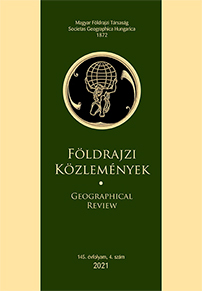A marosvásárhelyi magyar-román viszony a toponímiai tájkép tükrében
Absztrakt
In the past years, the relationship between Transylvanian Hungarians and Romanians has been stressed by symbolic conflicts that revolved around the Hungarians’ use of their minority language and symbols. These conflicts are more pronounced in ethnically mixed cities where Hungarians are still living in significant numbers. This paper analyses one such city, Târgu Mureş, from the perspective of critical toponymy. It studies how efficiently local Hungarian and Romanian symbols are inscribed onto the toponymic landscape, as well as what kind of nationalisms they suggest. Drawing on theoretical insights from nationalism studies and critical toponymic research, the study interprets empirical data based on the analysis of street names, educational institution names and the bilingualism of street name signs. On the one hand, the paper concludes that Romanian symbols are overrepresented in the toponymy. On the other hand, it suggests that local Romanian nationalism has a nationalising character whereas local Hungarian nationalism seems to be more local patriotic in nature.
Copyright (c) 2021 Ákos Holányi

This work is licensed under a Creative Commons Attribution-NonCommercial-NoDerivatives 4.0 International License.



